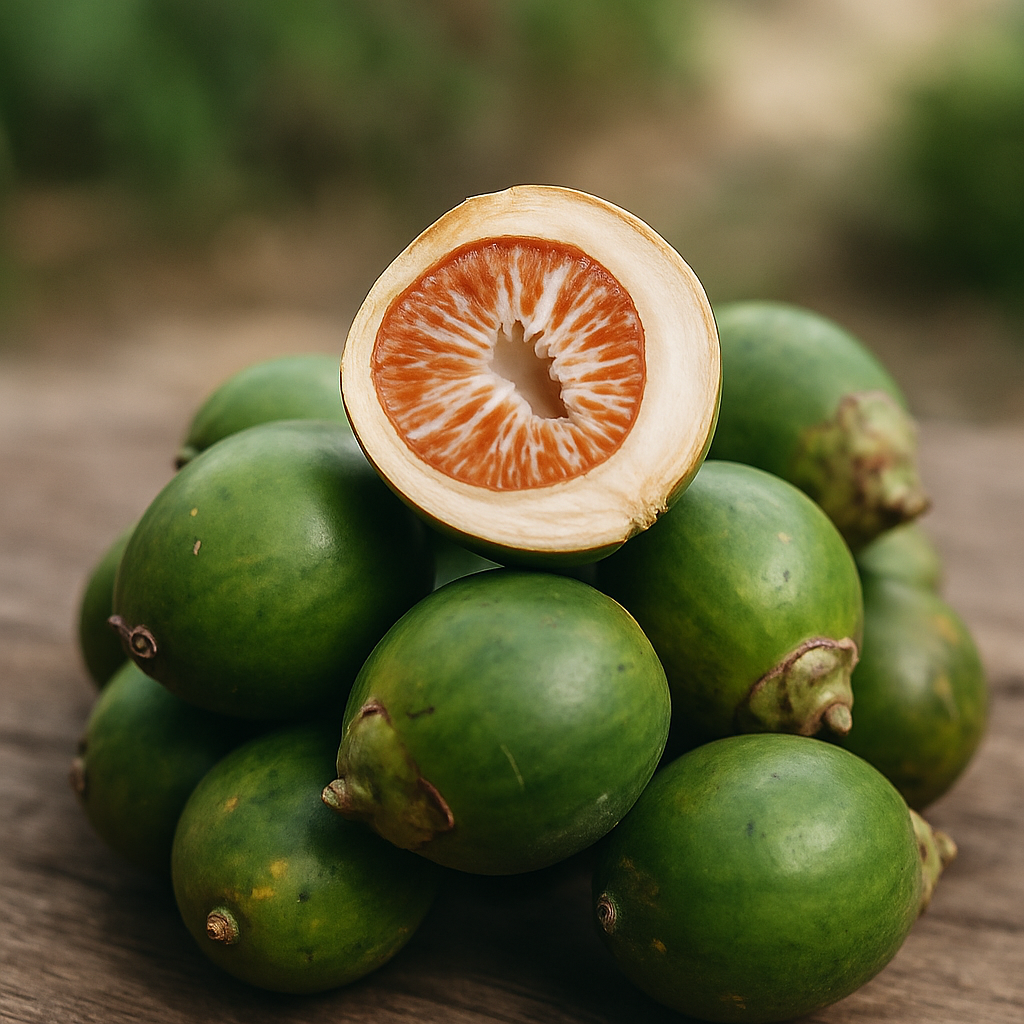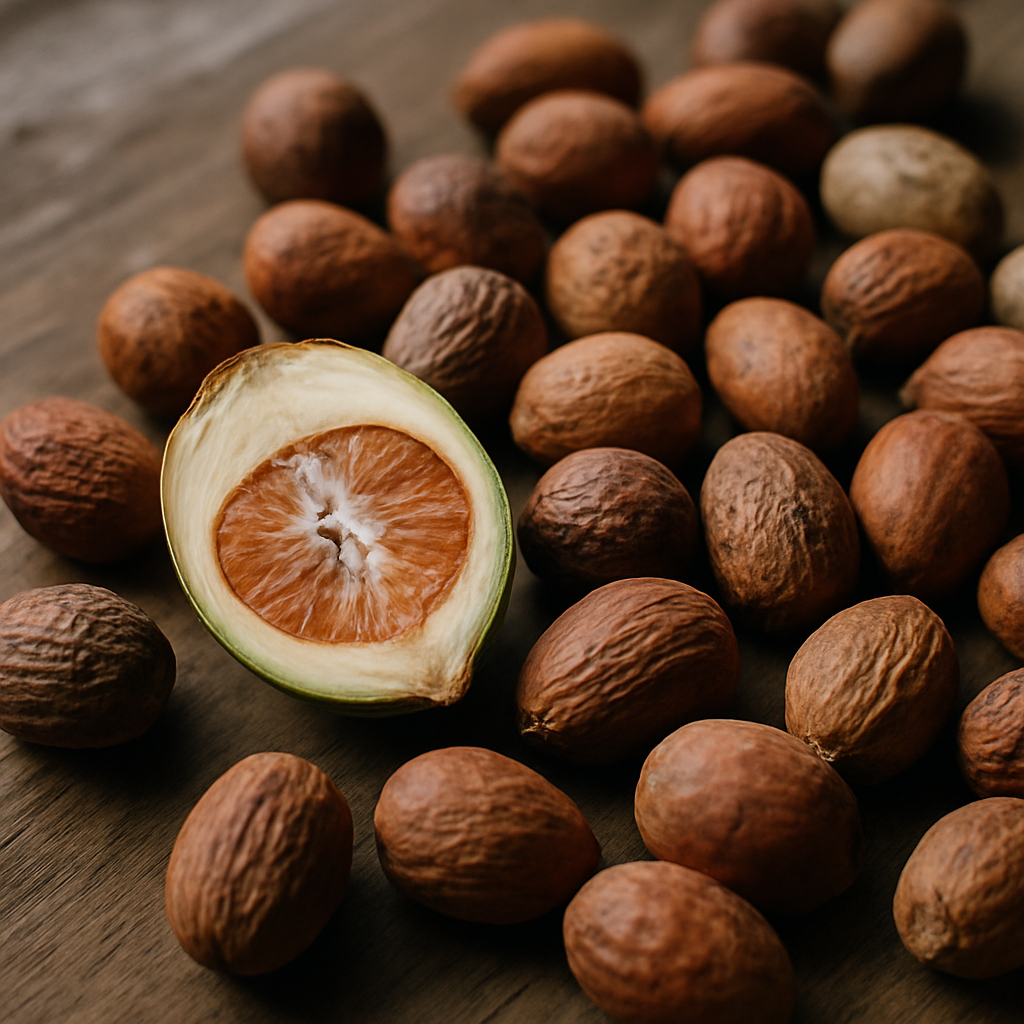Ask Ayurvedic doctor a question and get a consultation online on the problem of your concern in a free or paid mode. More than 2,000 experienced doctors work and wait for your questions on our site and help users to solve their health problems every day.
Is Supari Good for Health: Benefits, Risks, and Ayurvedic Perspective

When it comes to traditional herbs and natural stimulants, few are as debated as supari, also known as betel nut. Some people ask, “is supari good for health?” while others worry, “is betel nut bad for health?” The truth is, the answer isn’t black and white. In Ayurveda, supari has been used for centuries as a digestive aid and even in spiritual rituals. But modern medical research often warns about its possible risks. So, is eating betel nut good for health, or is supari bad for health in the long run? This article explores both sides of the story — benefits, dangers, and cultural perspectives — so you can make a more informed choice.

What Is Supari and Its Place in Ayurveda
Supari, commonly known as areca nut or betel nut, is the seed of the Areca palm. It’s usually chewed either on its own or wrapped with betel leaves and lime paste. In Ayurveda, supari has been traditionally used to freshen breath, improve digestion, and balance certain doshas.
Is Eating Supari Good for Health According to Tradition
From the Ayurvedic point of view, supari is believed to stimulate appetite and support digestion. Ancient texts even described it as a “mouth purifier.” Many people still believe that supari is good for health or not depends on how it’s prepared and how much is consumed. Chewed in moderation, it was once thought to enhance oral hygiene.
But here’s the catch — Ayurveda was developed thousands of years ago, without today’s scientific tools. So while the tradition says is eating supari good for health, modern research often paints a different picture.
Supari in Cultural and Religious Practices
Supari also carries strong cultural significance. In Indian weddings, for example, betel nut is offered as a symbol of respect and prosperity. Religious rituals across South Asia often include supari as part of offerings to deities. People don’t just ask “is supari harmful for health?” but also value its symbolic meaning.
For many, chewing supari after a meal is less about health and more about tradition — like the way some cultures drink coffee after dinner.

Don't wait or self medicate. Start chat with Doctor NOW
Betel Nut and Its Health Effects
While Ayurveda and tradition see betel nut in a positive light, science adds layers of complexity. Let’s explore both the benefits and the risks.
Is Betel Nut Good for Health in Ayurvedic Medicine
Ayurvedic texts mention that betel nut strengthens gums, improves digestion, and even increases energy. Some healers believed it had a cooling effect on the body, helping balance excess heat in the stomach. For centuries, this was enough to convince people that is betel nut good for health had a clear “yes” answer.
Why Is Betel Nut Harmful for Health in Modern Research
Modern science, however, raises red flags. Research shows that chewing supari regularly can lead to oral submucous fibrosis, a condition that stiffens the mouth lining and increases cancer risk. This is why doctors strongly argue about why is betel nut harmful for health. It’s not just about the nut itself, but also about how often people chew it, and whether they combine it with tobacco or lime.
In fact, studies say that is supari harmful for health is not a matter of tradition, but of dose and long-term exposure. Chewing it daily for years can seriously affect oral and digestive health.
Potential Health Benefits of Supari
Despite its risks, supari isn’t all bad. For centuries, people have turned to it for certain health benefits. Ayurveda, traditional medicine, and even cultural anecdotes suggest that betel nut can have positive effects — when consumed carefully.
Possible Positive Effects on Digestion and Oral Health
One of the most commonly cited benefits is digestion. Many households in India still offer betel nut or paan after meals, not only for tradition but also to help the stomach feel lighter. Some Ayurvedic practitioners suggest that small amounts of supari stimulate saliva, which supports digestion and prevents constipation.
Another often-mentioned benefit is oral hygiene. People in rural communities have long chewed supari as a way to clean the mouth. It was believed to strengthen gums and freshen breath. Some elders still argue, “is eating supari good for health? Yes, if you don’t overdo it.”
But here’s where it gets tricky: what feels like a benefit in the short term might create hidden risks in the long term. Modern dentists, for example, strongly disagree with the idea that supari helps the mouth — they warn it erodes enamel and stains teeth badly. So, supari’s supposed oral health benefits are… well, controversial at best.

Risks and Side Effects of Betel Nut Consumption
While tradition praises supari, modern science paints a darker picture. And if we’re asking seriously, is betel nut bad for health, the research leans heavily toward “yes.”
Is Betel Nut Bad for Health: Scientific Findings
Chewing betel nut releases alkaloids — compounds that can act as stimulants, giving a slight “buzz” or alertness. This may explain why people enjoy it socially, similar to how others enjoy coffee. But the problem is, prolonged use has been linked to health issues.
Studies across South Asia and the Pacific islands found that frequent supari chewers are at much higher risk of oral cancers. Doctors also connect it to heart problems, gum disease, and digestive tract disorders. So when researchers are asked is betel nut bad for health, they don’t mince words. The risks outweigh the benefits in almost every long-term study.
Interestingly, some users say they feel more awake and energetic after chewing. That’s true — but it’s also why it becomes addictive. Which brings up another question people often ask: is supari addictive? Yes, very much so. The mild stimulant effect can hook people into daily use, making it hard to stop even when they know the dangers.
Is Supari Bad for Health and Associated Long-Term Risks
Beyond oral cancer, betel nut chewing is associated with metabolic issues. Some evidence suggests it can raise the risk of diabetes and high blood pressure. Others report it may cause stomach ulcers.
So while an elder may claim “supari is good for health or not depends on the person,” modern healthcare professionals are firm: is eating supari bad for health if done regularly? The answer is unfortunately yes.
What makes this even more concerning is how normal and casual its use has become. In many communities, people chew supari several times a day, unaware of the hidden dangers stacking up over years.
Supari Safe Usage and Recommendations
So, if both Ayurveda and modern science talk about supari, what’s the middle ground? Can you enjoy it without harming your health, or is it better to avoid it completely? Let’s break it down.
Is Eating Betel Nut Good for Health in Moderation
Some experts argue that moderation is key. Occasional chewing of plain betel nut — without tobacco, sweeteners, or artificial flavoring — might not cause immediate harm. For instance, an occasional post-meal chew during festivals or special rituals could be acceptable.
But here’s the catch: moderation is easier said than done. Because supari has addictive properties, many people don’t stop at “just once in a while.” This makes the question is eating betel nut good for health in moderation very tricky.
Is Eating Supari Bad for Health if Overused
If consumed daily or multiple times a day, the risks grow rapidly. Regular chewing can harden the oral tissues, discolor teeth, and even create precancerous conditions. This is why the medical community is strong in saying: is eating supari bad for health if overused? Absolutely yes.
It’s a bit like sugar — a tiny amount might not matter much, but overdoing it leads to serious long-term problems.
Who Should Avoid Supari for Better Health
Certain groups of people should stay away from supari entirely. Pregnant women, for example, as studies suggest it may affect fetal development. People with high blood pressure, diabetes, or oral health issues should also avoid it, since supari can worsen these conditions.
If you’re already dealing with mouth ulcers, gum disease, or digestive trouble, chewing supari will likely make it worse, not better.
Conclusion
So, let’s circle back to the big question: is supari good for health? The answer is complicated. From an Ayurvedic perspective, small doses were once believed to help with digestion and oral hygiene. In cultural and religious contexts, it holds symbolic and social importance.
But modern research tells a more alarming story. Is betel nut bad for health? Yes — when used frequently. The risks of oral cancer, gum disease, metabolic issues, and addiction far outweigh the supposed benefits.
If you really want to try it, keep it rare, ceremonial, or traditional — not a daily habit. Health should always come first, and there are safer natural alternatives for digestion and energy.
At the end of the day, the question supari is good for health or not really depends on how much, how often, and whether you’re willing to take the risk.
👉 Call to Action: If you or someone you know chews supari regularly, consider talking to a doctor or dentist about healthier alternatives. Share this article with friends and family so they too can understand the real facts behind this controversial nut.
FAQs
Why is betel nut harmful for health?
Because it contains alkaloids that can damage oral tissues, raise cancer risk, and negatively affect digestion and heart health when chewed regularly.
Is supari addictive?
Yes. It works as a mild stimulant, making people feel alert. Over time, this creates dependency, similar to caffeine but with worse health effects.
How often can supari be consumed safely?
There’s no completely “safe” level. Occasional use during festivals or rituals might be less risky, but doctors recommend avoiding it altogether to protect long-term health.

